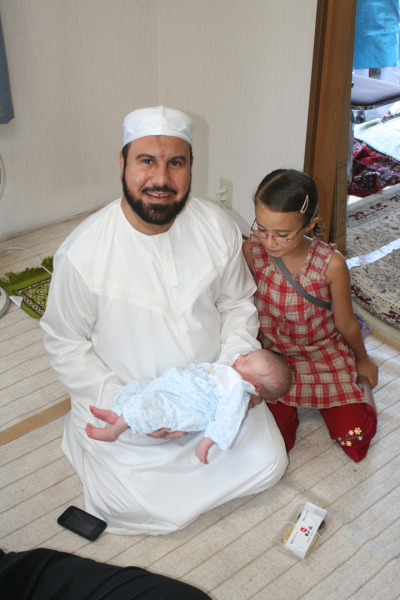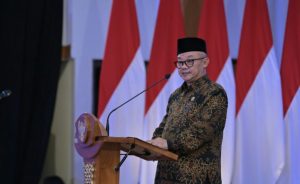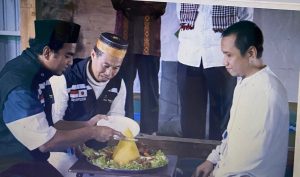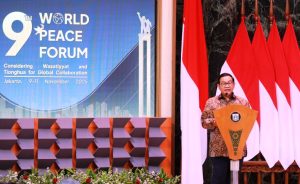
An Egyptian imam, Mohsen Bayoumy (55) in Osaka is seen as an example of the growth of Islam in Japan.(www.barenakedislam.com)
Osaka, 6 Shafar 1436/29 November 2014 (MINA) – Arriving in Japan fourteen years ago, an Egyptian imam, Mohsen Bayoumy (55) in Osaka is seen as an example of the growth of Islam in the far-eastern country, where preaching the true image of Islam granted the growing faith deep roots in the community.
“I have witnessed around 600 Japanese citizens converting to Islam,” Bayoumy, OnIslam.net quoted by Mi’raj Islamic News Agency (MINA) as reporting.
Bayoumy was born in a Cairo suburb in 1964 and achieved the feat of memorizing the Qur’an at the age of nine under the supervision of his father.
Back in 2000, Bayoumy, a graduate of Cairo’s Al-Azhar University, one of the world’s premier centers of Islamic scholarship, was dispatched to serve as the local mosque imam in Kobe.
Also Read: Pakistan Declares State of War After Car Bomb Incident
Getting news about his new destination, the imam knew little about the nation except that it had achieved rapid economic development after World War II.
There were only a few mosques in postwar Japan, but the oldest, founded in 1935, was in Kobe.
Muslims’ numbers increased sharply in the late 1980s with immigrants arriving from Pakistan and Indonesia in search of jobs.
Some of them subsequently married Japanese citizens and became permanent residents.
Also Read: Jakarta Hosts Gala Dinner for World Peace Forum Delegates
Later on, they began raising funds to convert ordinary homes into mosques and community centers, or to buy low-cost prefabricated homes for the same purpose.
That was the environment which Bayoumy found when he arrived.
Over the course of the 10 years he spent in Kobe he saw an increase in Japanese people adopting Islam after marrying Muslims or otherwise being exposed to Islamic culture.
The situation changed over years as Islam gradually put deep roots in Japan with more than 100,000 Muslims living there.
Also Read: Indonesian Minister Urges Synergy Between Wasathiyah Islam and Chinese Wisdom
Moreover, there are now around 60 mosques, many of them established in former private homes.
Challenges
The past years have not been all easy for the imam, especially after the 9/11 attacks on the US.
The imam, who moved in 2000 to Osaka, recalls receiving a number of telephone calls denouncing Islam.
Also Read: New Delhi Covered in Toxic Smog: Residents Say ‘We Can Hardly Breathe’
Bayoumy would speak with the callers calmly, saying: “We have nothing to hide. Please come here and talk with us.”
The imam’s calm attitude was offering a true image of Islam which calls for respecting families and neighbors, regardless of their faith.
When a Japanese follower asked if he might attend his family’s Buddhist memorial service, Bayoumy said he should attend but without reciting the Buddhist sutras.
“Allah orders us to have good relations with families and neighbors,” Bayoumy said.
Also Read: Boat Carrying 100 Rohingya Migrants Capsizes in Malaysian Waters
Along with offering religious services at the mosque, the imam has also assumed the role of the head of the screening committee of the Japan Halal Association which entitles him to examine whether their products are handled in accordance with Islamic dietary laws.
Bayoumy said he has always wished “to become a bridge between Japan and Islam.
“Deference is the most important thing for mutual understanding,” he added. “Respect as friends creates a peaceful society.”
Islam began in Japan in the 1920s through the immigration of a few hundreds of Turkish Muslims from Russia following the Russian revolution.
Also Read: Dozens Killed in RSF Drone Strike on Sudanese Village During Funeral
In 1930, the number of Muslims in Japan reached about 1000 of different origins.
Another wave of migrants who boosted the Muslim population reached its peak in the 1980s, along with migrant workers from Iran, Pakistan and Bangladesh.
Japan today is home to a thriving Muslim community of about 120,000, among nearly 127 million in the world’s tenth most populated country. (T/P006/P3)
Mi’raj Islamic News Agency (MINA)
Also Read: International Red Cross Calls for Safe Corridors for Civilians in Sudan


































 Mina Indonesia
Mina Indonesia Mina Arabic
Mina Arabic